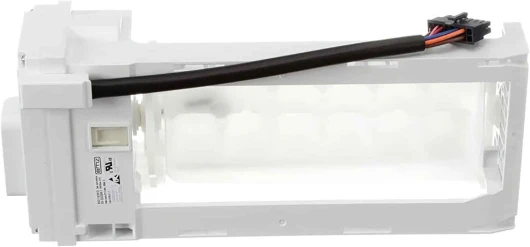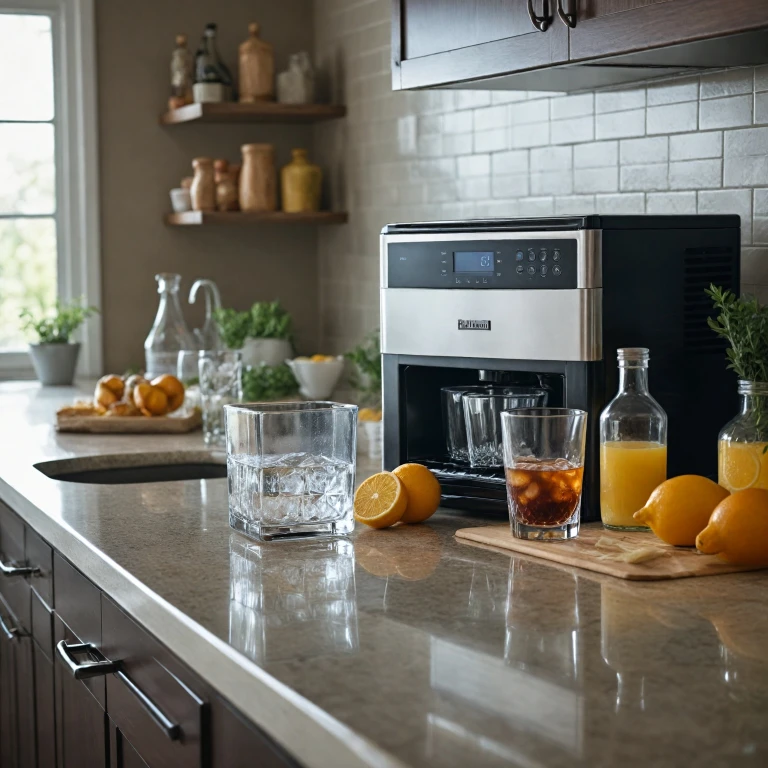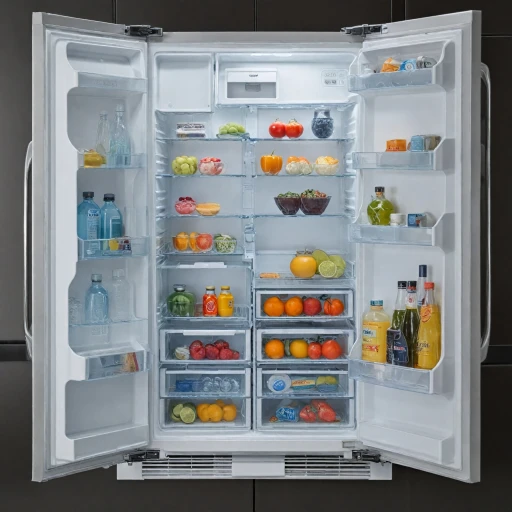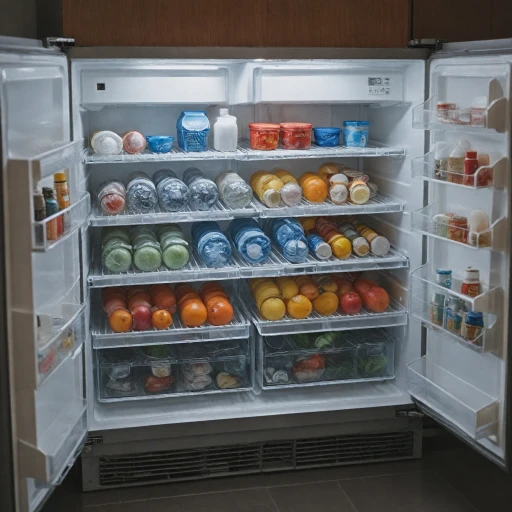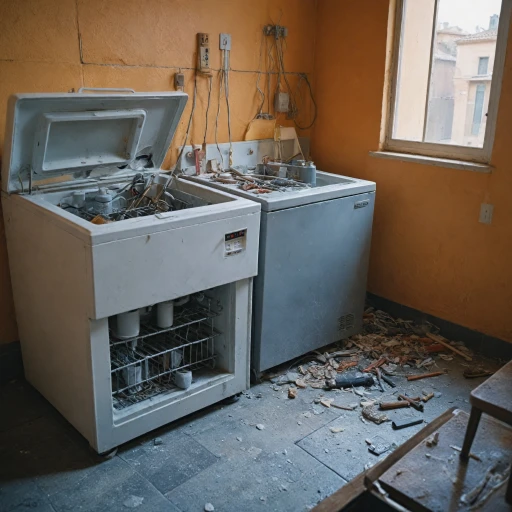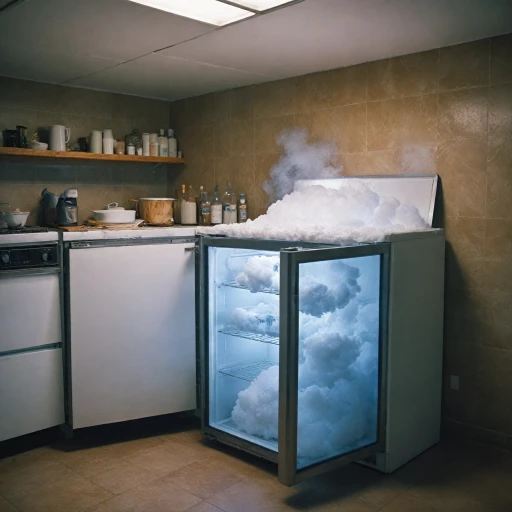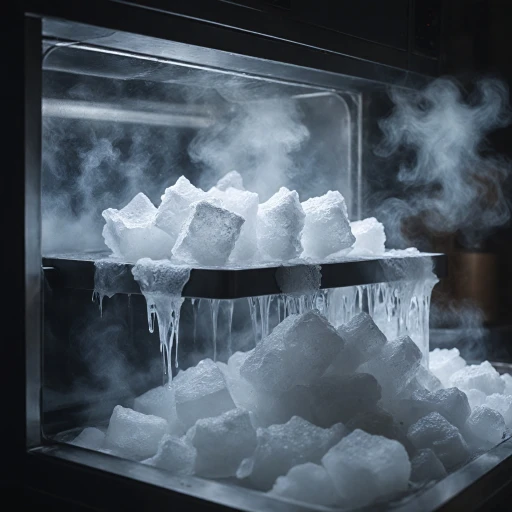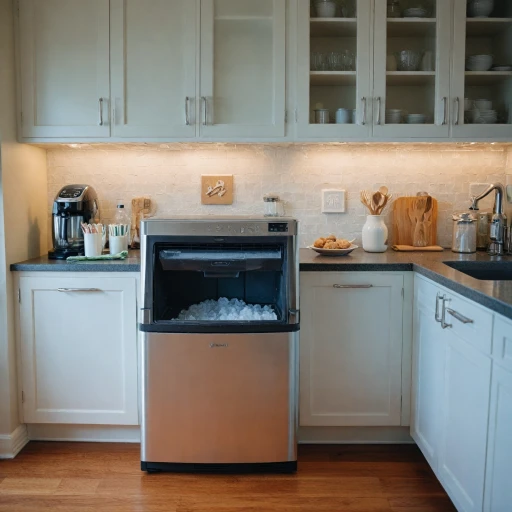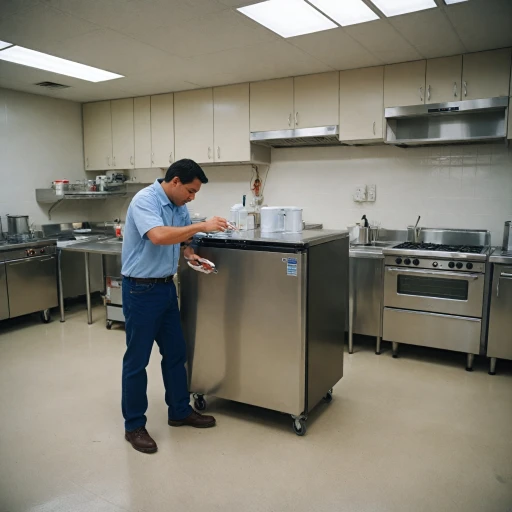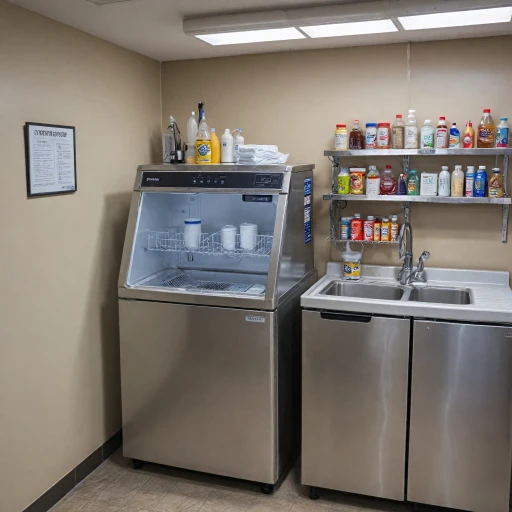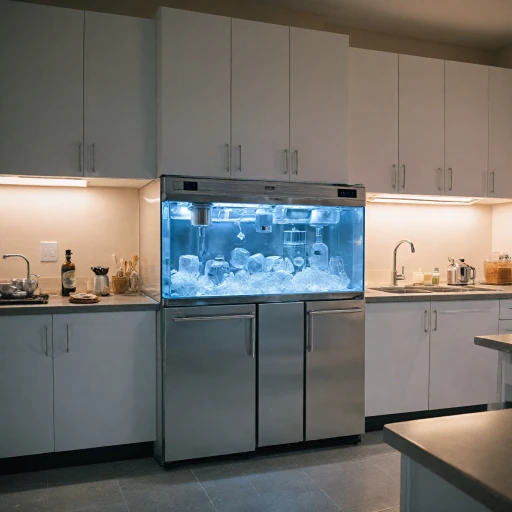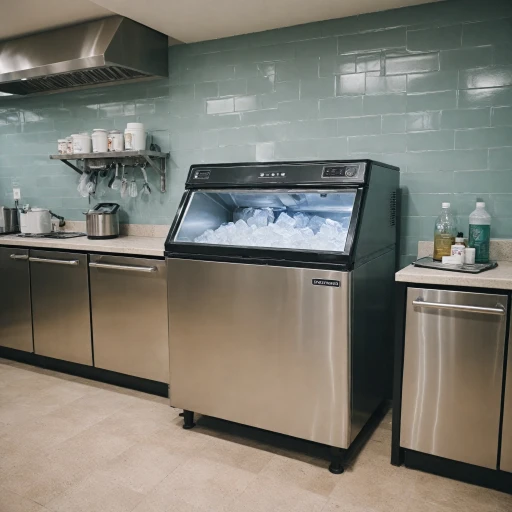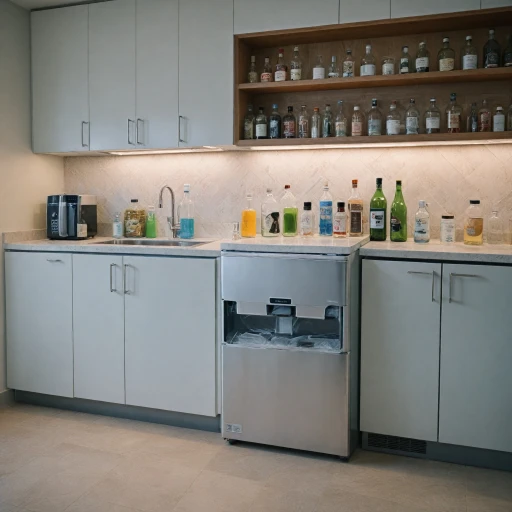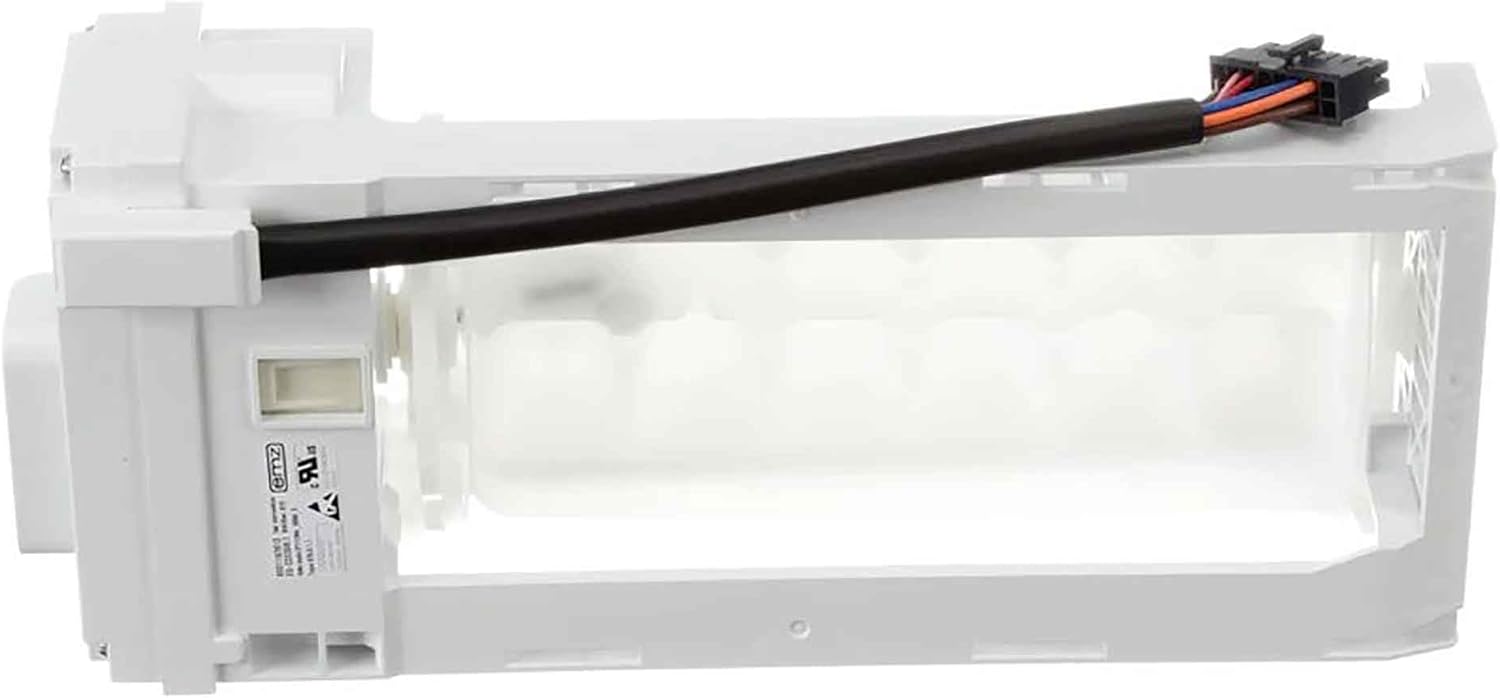
Understanding how your Bosch ice maker works
How the Bosch Ice Maker Produces Ice
Understanding the way your Bosch ice maker works can help you troubleshoot issues and keep your appliance running smoothly. The ice maker is typically located inside the freezer compartment of your Bosch refrigerator. It relies on a combination of water supply, temperature control, and mechanical components to produce ice cubes efficiently.
- Water Supply: The process starts when the water inlet valve opens, allowing water to flow from your home's water supply line into the ice maker assembly. Consistent water pressure is crucial for proper ice production.
- Freezer Temperature: The freezer must maintain a cold enough temperature for the water to freeze. If the temperature is too high, the ice maker may not produce ice or the cubes may be too small.
- Ice Maker Assembly: Once the water fills the ice mold, the assembly cools it until it forms solid ice cubes. After freezing, a control board signals the maker to eject the cubes into the storage bin.
- Door Switch: The door switch ensures the ice maker only operates when the freezer door is closed, helping to maintain the right temperature and prevent issues.
Regular checks on the water filter, inlet valve, and control board can help you spot problems early. If you notice your Bosch ice maker isn’t making ice, or if you experience leaks or unusual noises, understanding these basic functions will help you identify where the issue might be. For more on the importance of proper drainage in ice machines, you can read about the importance of an ice machine drain pump.
Identifying common Bosch ice maker problems
Recognizing Frequent Ice Maker Challenges
Bosch refrigerator ice makers are reliable, but like any appliance, they can develop issues over time. Understanding the most common problems can help you troubleshoot and maintain your ice maker more effectively. Here are some typical concerns Bosch owners encounter:
- Ice Maker Not Making Ice: If your Bosch ice maker stops producing ice, it could be due to a faulty water inlet valve, a clogged water filter, or low water pressure. Sometimes, the ice maker assembly or control board may also be at fault.
- Small or Misshapen Ice Cubes: Inadequate water supply or a partially blocked water filter can result in smaller or irregular ice cubes. Checking the water inlet and ensuring proper water pressure is essential.
- Ice Maker Won’t Eject Ice: When ice cubes remain stuck in the tray, the issue might be with the ice maker’s motor, the door switch, or a frozen ejector arm. Make sure the freezer temperature is set correctly and the door is closing fully.
- Water Leaks: Leaks around the ice maker or inside the freezer can indicate a problem with the water inlet valve, water supply line, or improper installation of the maker assembly.
- Unusual Noises: Clicking, buzzing, or grinding sounds may point to issues with the ice maker’s motor, the water inlet valve, or ice buildup around moving parts.
Addressing these issues early can prevent more serious problems and extend the life of your Bosch ice maker. If you need more detailed troubleshooting advice or want to get the most from technical support, check out this comprehensive guide to ice maker tech support.
Simple checks before calling for service
Quick Troubleshooting Steps for Your Bosch Ice Maker
If your Bosch refrigerator ice maker is not working as expected, there are a few simple checks you can do before calling for service. These steps can help you identify minor issues that may be affecting ice production and save you time and money.- Check the water supply: Ensure the water inlet valve is open and supplying water to the maker assembly. If the water supply is off or the water pressure is too low, your Bosch ice maker won’t be making ice cubes.
- Inspect the water filter: A clogged or old water filter can block water flow. Replace the filter if it’s been more than six months or if you notice a decrease in ice production.
- Examine the freezer temperature: The freezer should be set between 0°F and 5°F (-18°C to -15°C). If it’s too warm, the ice maker may not work properly.
- Test the door switch: The ice maker will not operate if the refrigerator door is open. Make sure the door switch is working and the door closes fully.
- Look for ice jams: Sometimes, ice cubes can get stuck in the maker assembly. Gently remove any jammed ice to allow new cubes to form.
- Confirm the control board settings: Check that the ice maker is turned on and the control board is set to allow ice production.
When your Bosch ice maker stops making ice
Troubleshooting When Ice Stops Being Made
If your Bosch ice maker suddenly stops producing ice, it can be frustrating. There are several factors that can cause this issue, but with a systematic approach, you can often pinpoint the problem before needing professional help. Here are the most important steps to check:
- Check the Water Supply: Ensure the water supply line to your Bosch refrigerator is connected and turned on. If there’s no water reaching the ice maker, it won’t be able to produce ice. Inspect the water inlet valve for blockages or leaks. Low water pressure can also prevent ice production.
- Inspect the Water Filter: A clogged or old water filter can restrict water flow. Replace the filter if it’s been more than six months since the last change, or if you notice a decrease in ice production.
- Examine the Freezer Temperature: The freezer should be set to the recommended temperature, typically between 0°F and 5°F. If it’s too warm, ice cubes won’t form properly. Use a thermometer to verify the actual temperature inside your freezer.
- Test the Door Switch: The ice maker will not operate if the refrigerator door is open. The door switch signals the control board to pause ice production when the door is open. Make sure the switch is working correctly by pressing it and listening for a click.
- Look at the Ice Maker Assembly: Sometimes, ice cubes can get stuck in the maker assembly, blocking new ice from forming. Gently remove any jammed ice and check for broken or misaligned parts.
- Check the Control Board: If all other components seem to be working, the control board may be at fault. This part manages the ice maker’s cycles and can fail over time. If you suspect a control issue, it’s best to have a qualified technician inspect it.
By following these checks, you can often resolve issues with your Bosch ice maker not making ice. If the problem persists after these steps, it may be time to consider professional service to address more complex issues with the water inlet valve, maker assembly, or control board.
Addressing unusual noises and leaks
Pinpointing the Source of Noises and Leaks
Unusual noises or water leaks from your Bosch ice maker can be alarming, but they often have straightforward causes. Addressing these issues early helps prevent further damage and keeps your ice production steady.
- Check the water inlet valve: A buzzing or humming sound may indicate the water inlet valve is struggling to open or close. Ensure the water supply is turned on and water pressure meets Bosch’s recommendations. If the valve is faulty, it may need to be replaced.
- Inspect the ice maker assembly: Clicking or grinding noises can come from the ice maker assembly itself. Sometimes, ice cubes get stuck, causing the motor to strain. Gently remove any jammed ice and check that the assembly moves freely.
- Monitor the water supply line: Leaks often originate from the water supply line or its connections. Examine the line for cracks or loose fittings. Tighten connections and replace damaged tubing as needed.
- Evaluate the water filter: A clogged water filter can cause both noise and leaks by restricting water flow. Replace the filter regularly to ensure smooth operation and clean ice.
- Check the freezer temperature: If the freezer is too warm, ice may partially melt and refreeze, leading to blockages or leaks. Confirm the temperature is set according to Bosch’s guidelines for optimal ice production.
- Door switch and control board: If the refrigerator door switch or control board malfunctions, the ice maker may not cycle properly, causing odd sounds or water overflow. Test the door switch and, if necessary, consult a professional for control board diagnostics.
Regularly inspecting these components will help you catch issues early. If noises or leaks persist after these checks, it may be time to contact a qualified technician to ensure your Bosch refrigerator ice maker continues working efficiently.
Maintaining your Bosch ice maker for long-term performance
Routine Cleaning for Consistent Ice Production
Keeping your Bosch ice maker clean is essential for reliable performance. Over time, mineral deposits from water and general debris can build up in the maker assembly and water inlet. This can affect the quality of your ice cubes and even reduce the efficiency of your Bosch refrigerator ice maker. To prevent these issues, regularly clean the ice bin, the ice maker assembly, and the area around the water inlet valve. Always unplug the refrigerator before starting any cleaning to ensure safety.Replacing the Water Filter and Checking Water Supply
A clogged or old water filter can restrict water flow, leading to reduced ice production or odd-tasting ice. Bosch recommends replacing the water filter every six months, or sooner if you notice a decrease in ice quality. Also, check water pressure and ensure the water supply line is free from kinks or leaks. Low water pressure can prevent the ice maker from working correctly. If you suspect an issue with the water inlet valve, inspect it for blockages or mineral buildup and replace it if necessary.Monitoring Freezer Temperature and Door Seals
The freezer temperature should be set between 0°F and 5°F for optimal ice production. If the temperature is too high, the ice maker may not make ice or the ice cubes may be smaller than usual. Additionally, check the door seals for any gaps or damage. A faulty door seal can let warm air in, affecting the freezer temperature and ice maker performance. Make sure the door switch is functioning, as it controls the ice maker’s operation when the door is open or closed.Inspecting the Control Board and Switches
If your Bosch ice maker is not making ice consistently, inspect the control board and switches. A malfunctioning control board or a faulty switch can disrupt the ice maker’s cycle. If you notice irregularities, such as the ice maker not responding or the indicator lights not working, it may be time to replace these components. Always consult your Bosch refrigerator manual for guidance on accessing and replacing these parts.- Clean the ice bin and maker assembly monthly
- Replace the water filter every six months
- Check water pressure and supply lines regularly
- Monitor freezer temperature and door seals
- Inspect control board and switches if issues persist
-logo-retina.png)
